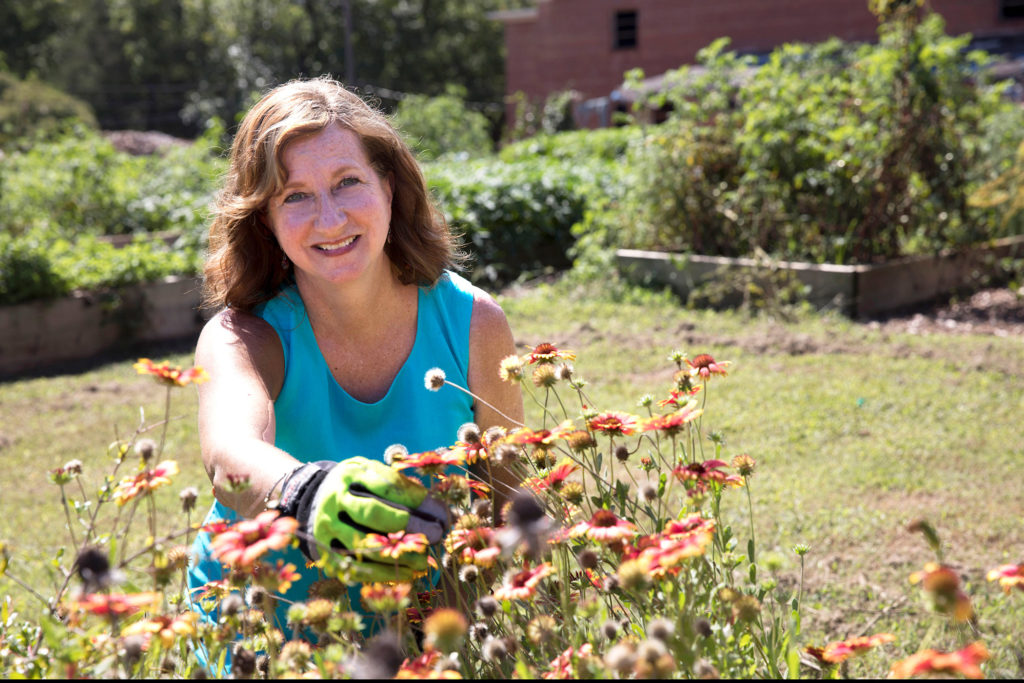Becky Griffin’s classroom doesn’t have a smartboard or a computer. Instead, it has sunshine and soil.
“I want students to know where their food comes from and to appreciate that, to take a chance to try to grow their own food and to not be scared of insects,” said Griffin, a community and school garden coordinator with the Urban Ag Center and UGA Cooperative Extension, a state-wide position that is part of the College of Agricultural and Environmental Sciences.
“I noticed that gardeners did not make the connection between food production and insects,” she said. “In their heads, all insects were pests. They weren’t thinking about pollinators. It benefits you in the long run to learn a little bit more about the insects that are naturally there and how you can help the good ones stay there.”
During the past year, Griffin, who is a certified beekeeper, put together a campaign to encourage gardeners to include plants that draw beneficial insects to their plots. The Pollinator Spaces Program uses research-based educational resources to teach people how to grow pollinator gardens. Her goal is to have 100 of these gardens by the end of the year. The Pollinator Census Project is a count of pollinators at 50 gardens. Data from this project will be used to help researchers get a snapshot of what pollinators are out there and also helps teachers meet requirements for STEAM certification as a citizen science project.
In addition, she developed a seven-step process for putting together a school garden, which she said gives students an opportunity to try new foods and learn outside the classroom.
“It’s a whole new way of reaching those learners who may not do well sitting in a classroom looking at a smartboard,” she said.
Community gardens, pieces of land cultivated by a group of people, have their own unique benefits, according to Griffin, who is also a lifetime Master Gardener, a group of trained volunteers who help Cooperative Extension staff share research-based information about gardening and related subjects to the public.
“The most important part of community gardens is the community,” Griffin said, pointing out research that found community gardens lead to more neighborly interaction, less crime, higher standards of living and more satisfaction among residents.
Community gardens are a good way to bring elements of land into an urban environment. Griffin has helped groups in Atlanta with their own gardens and found herself getting inventive with the space in her own subdivision.
“We can grow a lot more here than the books tell us we can,” she said. “In Georgia, you can have a garden pretty much all year long. You’ve just got to be creative.”
She applies that creativity to her own garden.
“I’ve gardened my whole life. I can’t remember a time when I didn’t garden,” she said. “I’m still awed by the fact that we can plant a seed, and out of that seed comes delicious food we can eat.”
In addition to growing peanuts, she grows produce like heirloom green beans from her great-grandmother and peppers. When she’s not in the garden, she’s beekeeping, running, learning Italian and cooking food from her land.
